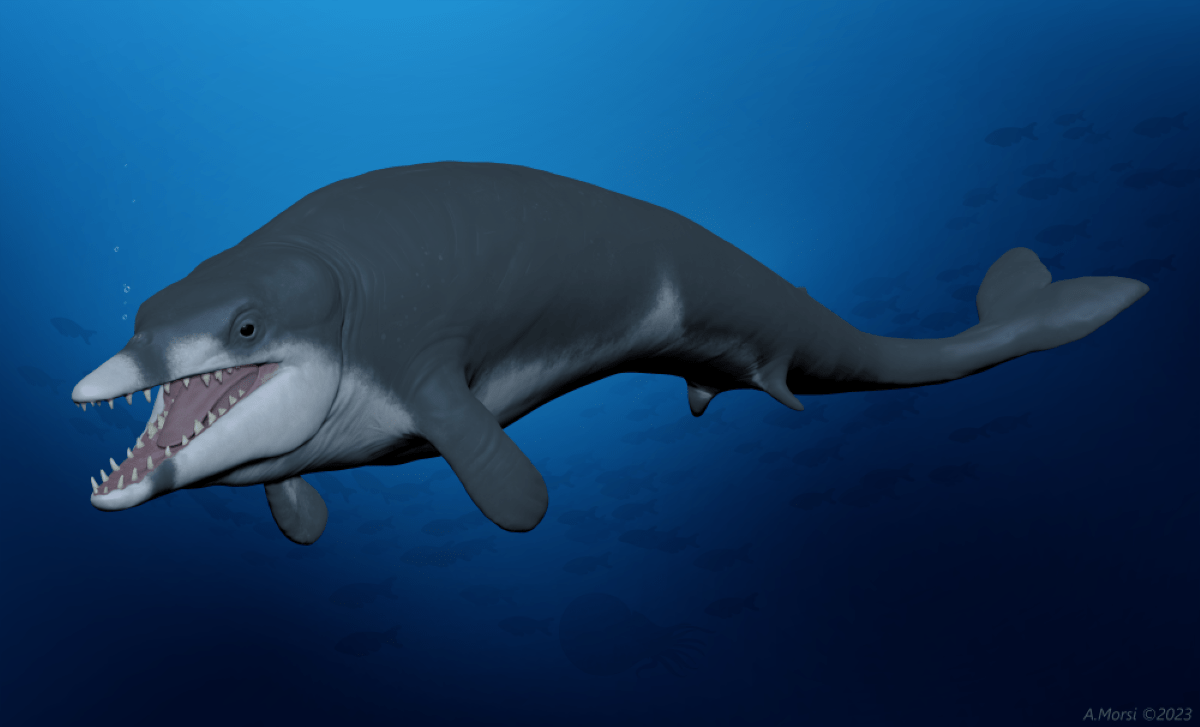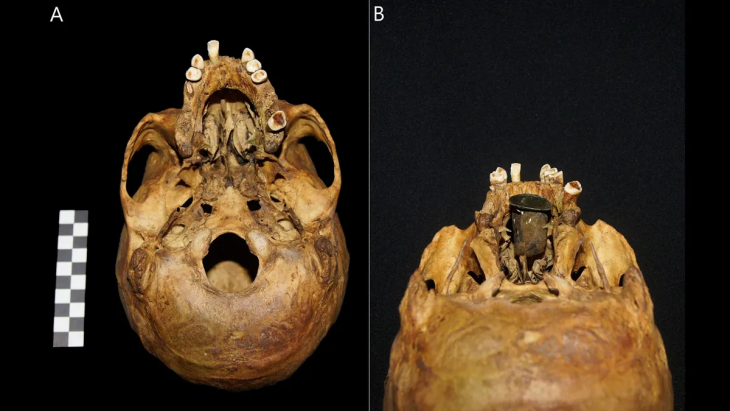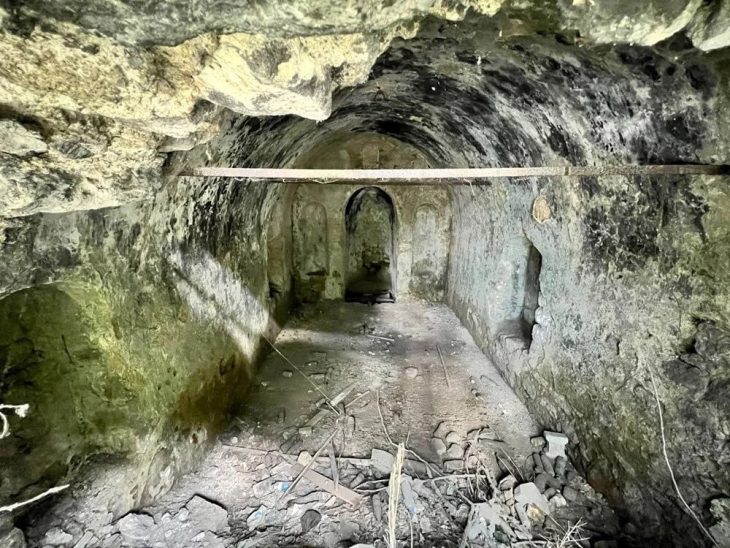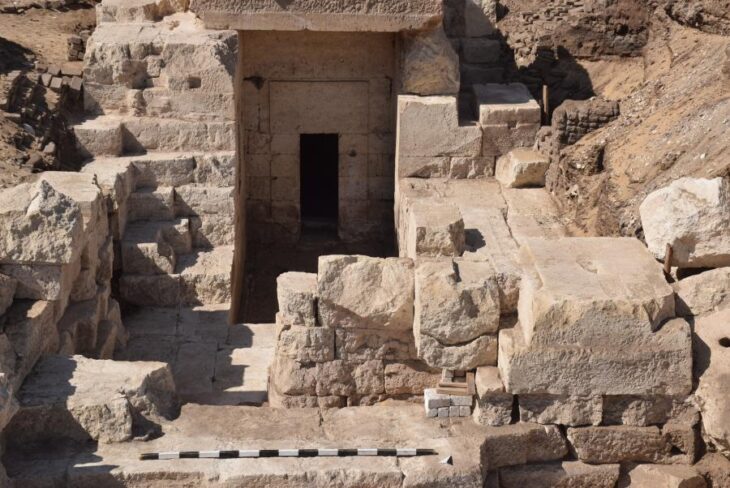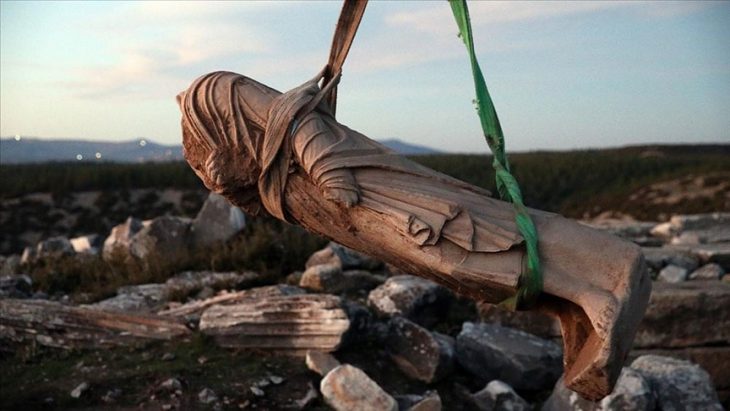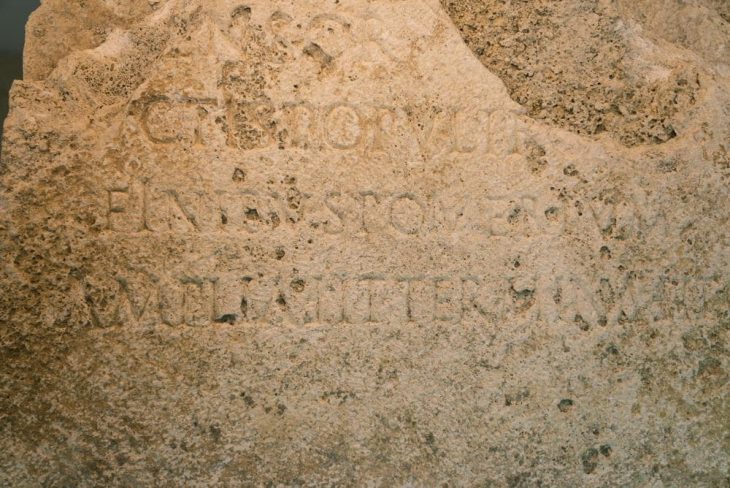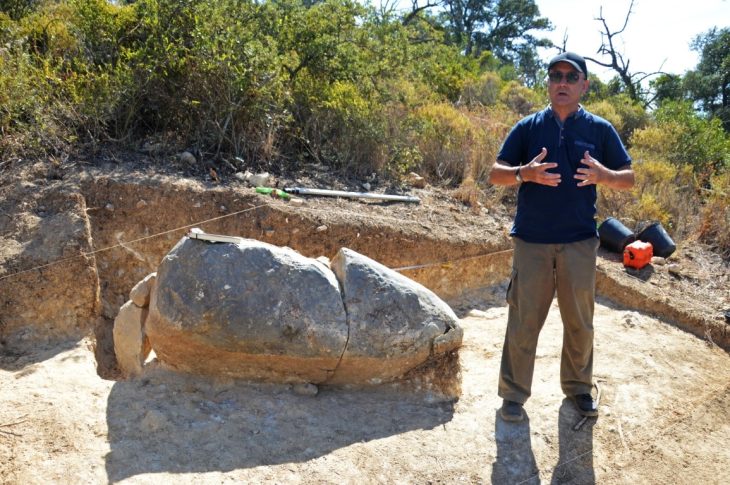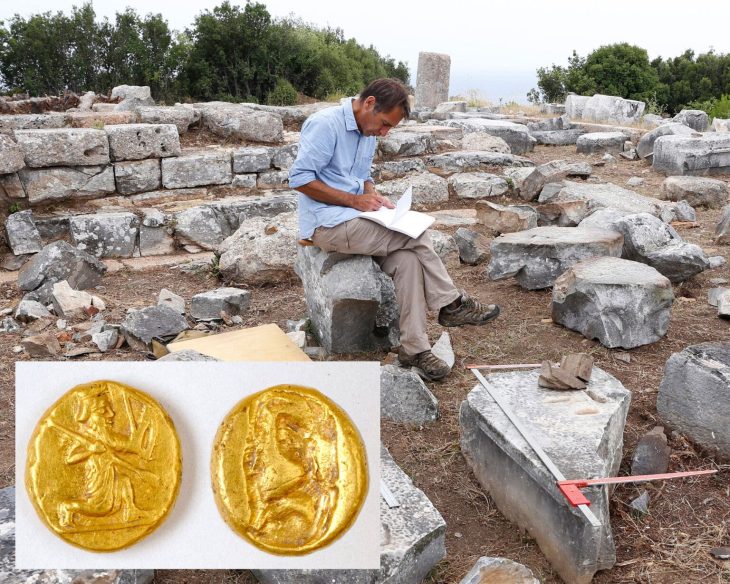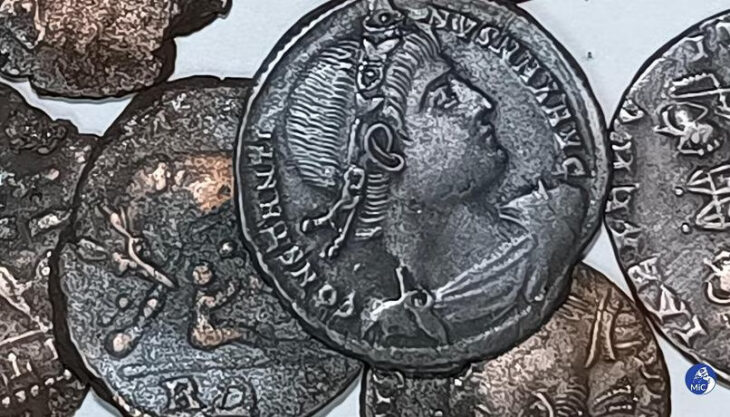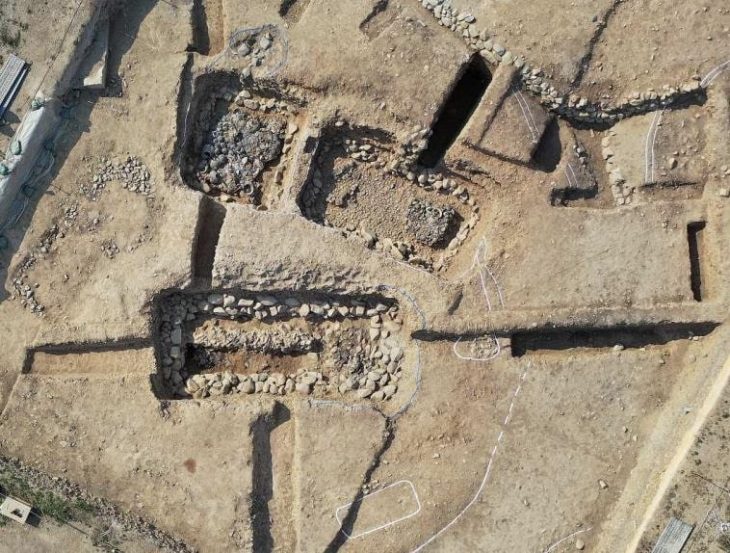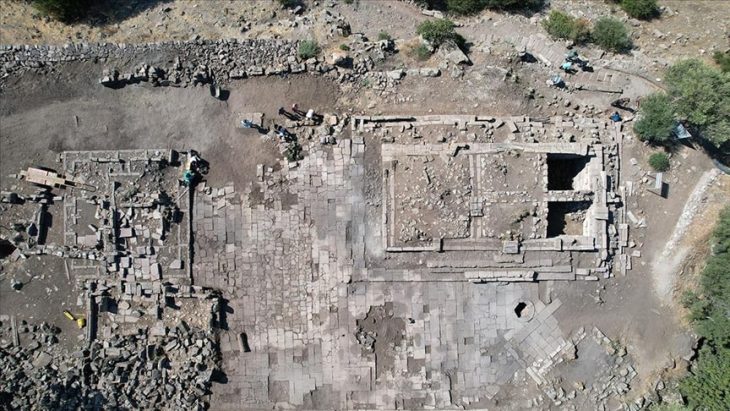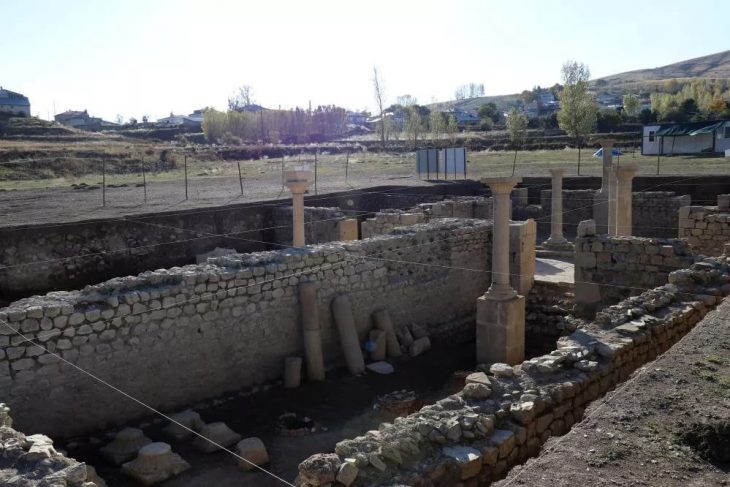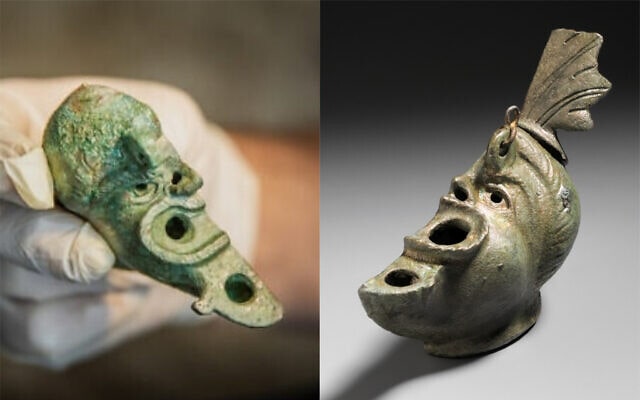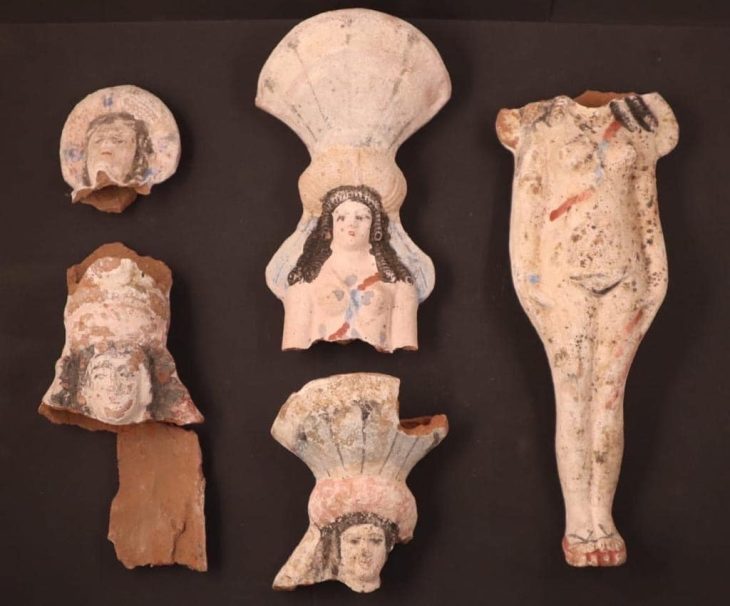Paleontologists in Egypt announced the discovery of a new species of extinct whale that inhabited the sea covering present-day Egypt around 41 million years ago.
With an estimated length of 2.5 meters and a body mass of approximately 187 kilograms, the new species, named Tutcetus rayanensis, is the smallest basilosaurid whale known to date and one of the oldest records of its family in Africa.
The name of the new whale draws inspiration from Egyptian history and the discovery’s locale. Tutcetus combines “Tut” — referring to the famous adolescent Egyptian Pharaoh Tutankhamun — and “cetus,” Greek for whale, highlighting the specimen’s small size and young age. Rayanensis refers to the Wadi El-Rayan Protected Area in Fayoum, where the whale was found.
Additionally, the name was chosen to commemorate the centennial of the discovery of King Tut’s tomb and coincides with the forthcoming opening of the Grand Egyptian Museum in Giza.
Despite its modest size, Tutcetus has provided scientists with remarkable insights into the life history, phylogeny and paleobiogeography of early whales.
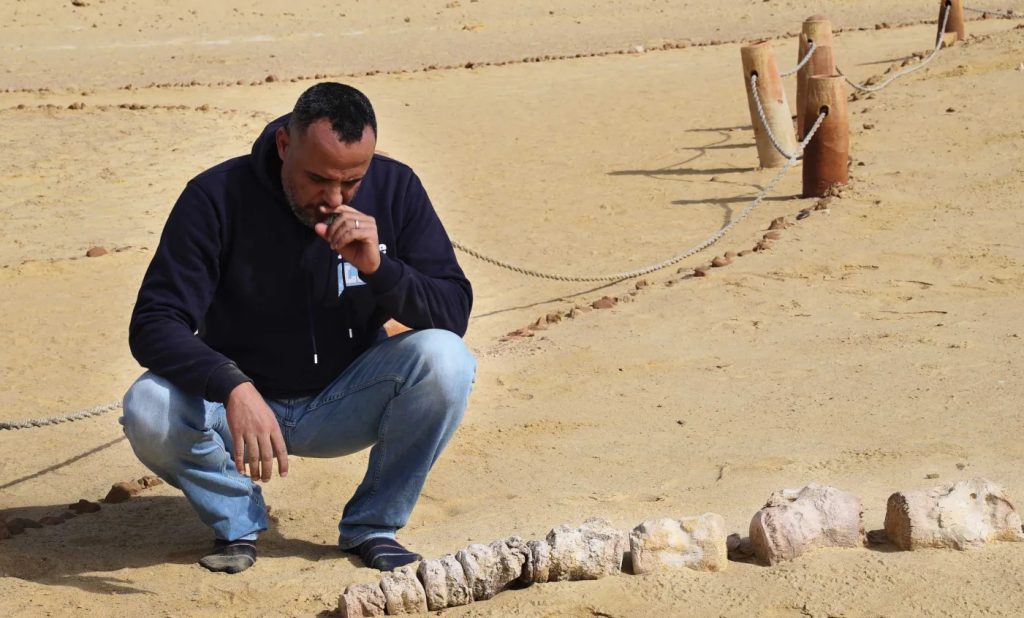
Team leader Hesham Sallam, of the American University in Cairo (AUC), said it was a “remarkable discovery that documents one of the first phases of the transition to a fully aquatic lifestyle”.
From Land to Sea
The Basilosauridae, a family of extinct, fully aquatic whales, represent a crucial stage in whale evolution. As they transitioned from land to sea, the basilosauridae developed fish-like characteristics, such as a streamlined body, a strong tail, flippers, and a tail fin. Their hind legs, which previously served them on land, were no longer used for walking but possibly for mating.
“Whales’ evolution from land-dwelling animals to beautiful marine creatures embodies the marvelous, adventurous journey of life,” Sallam said. “Tutcetus is a remarkable discovery that documents one of the first phases of the transition to a fully aquatic lifestyle that took place in that journey.”
The team’s findings have been published in Communications Biology, an open-access journal from Nature Portfolio publishing high-quality research, reviews and commentary in all areas of the biological sciences. Through detailed analyses of the teeth and bones of Tutcetus using CT scanning, the team reconstructed the growth and development pattern of the species. Rapid dental development and small bone size suggest that the whale was precocial, meaning it was able to move and feed itself from birth.
The discovery also adds to our understanding of basilosaurids as successful, competitive, and adaptable during their transition from land to sea. The team’s findings suggest that this transition likely occurred in the (sub)tropics.
“Modern whales migrate to warmer, shallow waters for breeding and reproduction, mirroring the conditions found in Egypt 41 million years ago,” explained Abdullah Gohar, a PhD student at Mansoura University, member of Sallam Lab, and a co-author of the study. “This supports the idea that what is now known as Fayoum was a crucial breeding area for ancient whales.”
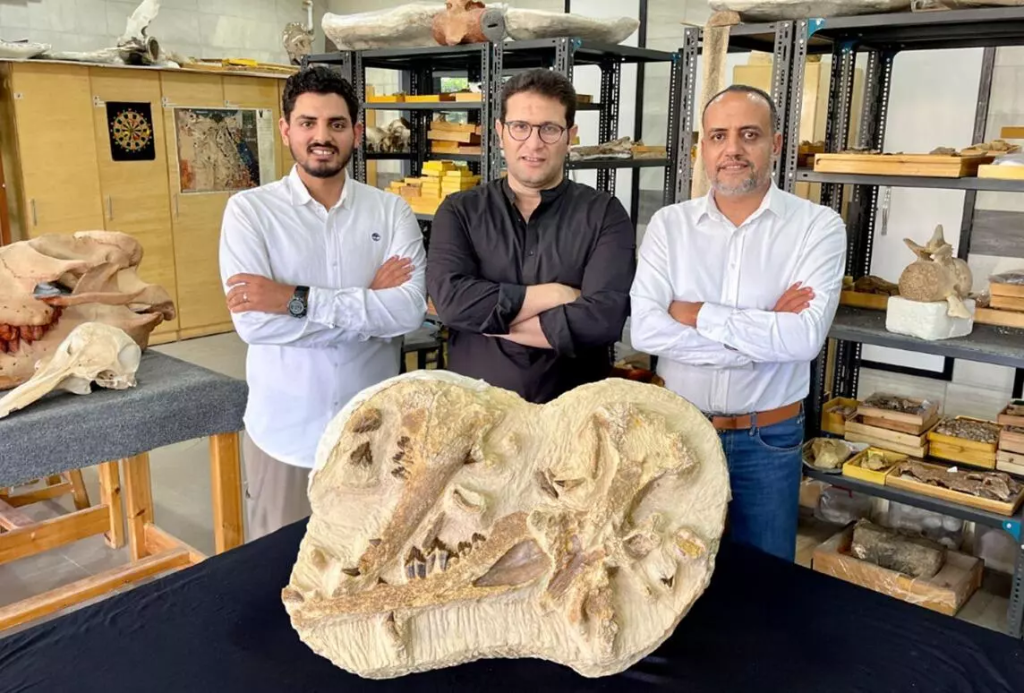
The study’s lead author, Mohammed Antar, from the MUVP and the National Focal Point for Natural Heritage, added, “Tutcetus significantly broadens the size range of basilosaurid whales and reveals considerable disparity among whales during the middle Eocene period. The investigation of early layers in Fayoum may reveal the existence of an older assemblage of early whale fossils, potentially influencing our current knowledge of the development of whales.”
One thing is certain: this major discovery is likely one of many more to come. In recent years, Sallam and his team’s discoveries include the bones of a 34-million-year-old rodent, a 37-million-year-old gigantic catfish, snake and legless lizard fossils, and the first evidence of a 100-million-year-old Abelisauroid, a meat-eating dinosaur, in Egypt’s Bahariya Oasis, among others.
“The Eocene fossil sites of Egypt’s Western Desert have long been the world’s most important for understanding the early evolution of whales and their transition to a fully aquatic existence,” said Erik Seiffert, chair and professor of integrative anatomical sciences at the University of Southern California and a co-author of the study. “The discovery of Tutcetus demonstrates that this region still has so much more to tell us about the fascinating story of whale evolution”.
Fayoum Oasis, some 150 kilometres (90 miles) southwest of Cairo, boasts Wadi al-Hitan, the Valley of the Whales, a UNESCO World Heritage Site that has turned up hundreds of fossils of some of the earliest forms of Whale.
Now an oasis in the Western Desert, Fayoum lay under a tropical sea in the Eocene period 56 to 34 million years ago.
Read more about Sallam’s work in AUCToday.
Cover Photo: Reconstruction of Tutcetus

